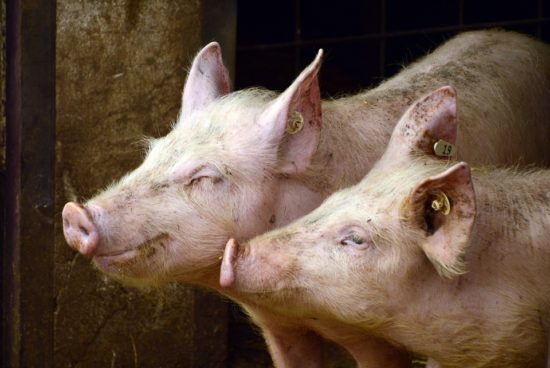Antimicrobial resistance in commensal Escherichia coli and Enterococcus spp. isolated from pigs subjected to different antimicrobial administration protocols
The antimicrobial resistance (AMR) in human and animal pathogens is a global concern, and antimicrobial use (AMU) is considered the most important driver for its increase. The aim of this study was to assess AMR in Escherichia coli and Enterococcus spp. in faecal samples of pigs subjected to four different AMU protocols from birth to finishing: G1, no in-feed antimicrobials; G2: a total average dose 6018 mg antimicrobials/pig; G3: a total average dose 8127 mg antimicrobials/pig; and G4: a total average dose 15,678 mg antimicrobials/pig. Faecal samples were collected at six time points and AMR was assessed in both bacteria. The microbiota composition was assessed by 16S rRNA sequencing. Minor differences on the microbiota profile was observed among groups, but a lower Firmicutes:Bacteroidetes ratio was noted in G4. Escherichia coli and Enterococcus spp. strains isolated from all groups showed a high level of multi-drug resistance (MDR). The amount of antimicrobials used was significantly positively associated with the probability of MDR in both bacteria.
AMR NEWS
Your Biweekly Source for Global AMR Insights!
Stay informed with the essential newsletter that brings together all the latest One Health news on antimicrobial resistance. Delivered straight to your inbox every two weeks, AMR NEWS provides a curated selection of international insights, key publications, and the latest updates in the fight against AMR.
Don’t miss out on staying ahead in the global AMR movement—subscribe now!







